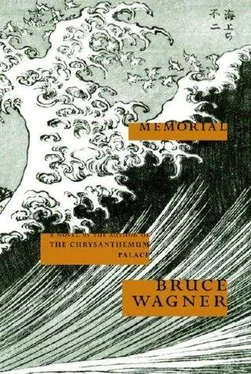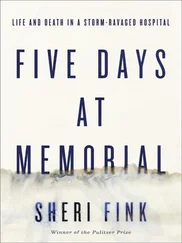One thing Marj didn’t share with her daughter, Cora, or anyone, was a wild-eyed, magical idea that had grown inside her over the last few weeks with an ineluctable pull: Widow Herlihy had made up her mind to go to India and revisit the hotel Dad brought her to when she was a girl — the very best time of her life, a time she was convinced had made her the person she was today, suffusing her disposition, her entire existence, with a kind of diurnal poetry and peasant’s optimism, a time that allowed her to suffer all life’s vicissitudes, coloring her day-by-day mood with the lingering incense of nonsectarian spiritual hopefulness.
In the winter of her life, Marjorie Herlihy would travel to Bombay and check into the very suite that father and daughter once shared at the Taj Mahal Palace, a stone’s throw from the Majestic Gate of India.
SHE was at ARK, in Venice, looking at the Rizzoli book: Zaha Hadid.
A dangerous object, 4 volumes of squiggly drawings and vaunted nonsense, each one a different size, slipcased into the special berths of a sharp-edged, thick, plastic, bloodred mothership. When architects and book designers met, it was a supercalifragilistic hagiographic clusterfuck. The collaborators reveled in making a fine arts tomb: a vanity memorial enshrining the master builder who’d become an ostentatiously overdesigned object himself, essayists and typographers working with pharaonic zeal, the book a sacred extension of the guru’s body, a highfalutin Pritzkerama requiring the dignified, calibrated, meticulous touch of latex’d surgeons in an amphitheater (patients aestheticized upon a table). But Joan thought this one just looked cheap, inside and out: vomitous tracts discretely en brève, with requisite untidily tidy references to Hegel, “excavations,” and other opaquely Boolean folderol embroidering endless built and virtually built projects of dubious digital coherence contained within. The print resolution was shoddy. Were they so Olympian they thought no one’d give a shit?
There was only one thing she liked in the entire unappetizing enterprise: the ski jump at Innsbruck. No, not true; there was something else. As far as she could tell (she hadn’t skimmed everything, nor would she), there wasn’t a photo of Hadid. Maybe this was simply the pomposity of inverted egotism. How had this woman gotten so famous, anyway? She was even curating, no, “guest designing,” the content of literary magazines. (Dopey sci-fi computer renderings at the head of each short story that would have looked more at home on Wired subscription blow-ins.) Perhaps a paucity of female architects had dictated her arc — Joan’s ARK swallowed by Zaha the whale — or the mere miracle that she’d managed, with grace and alacrity, to remove herself from King Koolhaas’s shadow — a Grand Chess Master’s trick, Joan had to admit…or her dramatic looks, the Baghdad-born thing, feminist warrior-ship masthead, unclassifiable geodesic goddess in a woman-killing theocracy, the sheer improbability of it, plus unkempt Fat Actress kohl-smeared gypsy-soprano factor that made her rock-star notable. Of course none of Joan’s acid observations interfered with the awareness she wanted to be Zaha; wanted books written on her own work, international forums centered around her own ideas, phantom or realized, wanted her very own (Mary!) band of Lilliputians to clamber on the papal bull of her mons zero. But she (Joan) was still relatively young. That kind of momentum took time. Oh God —
If she won the Freiberg Memorial, Ms Herlihy resolved to be happily, gloriously nichified, for a few years at least, like the early Maya Lin. Lin cut her teeth on a few mems before moving on to that wonderfully minimalist library in Tennessee, private homes, sculptures, the whole 9 yards; she was probably already designing tea and coffee sets for Alessi, just like El Zorro, though it was unlikely the Target audience could possibly be interested in ZH’s cold, arcane “liquid metal piazza” or the “Z Island” Corian kitchen with verbena scent dispensers (commissioned by Ernestomeda) or the 80,000 dollar “Aqua” polyurethane resin silicone-gel-topped table she’d done for that Wallpaper kid’s pretentious Established & Sons (Barbet told her the “kid” was married to Stella McCartney) or the chandelier she created for Sawaya & Moroni and displayed at the Milan furniture fair. Next would come ZH chairs, ZH linen, ZH sunglasses… how about ZH dildoes? ZH superabsorbent adult diapers? ZH Fentanyl pain patches? But so what. Even Gehry had done a Wyborowa bottle. Now he was working for Tiffany.
OK. It was clunky, but she liked elements of Hadid’s Cincinnati museum though didn’t agree with whoever had said that it was the most important American building to be completed since the end of the Cold War, or with the surreally profligate comparisons to Malevich, Lissitzky, Balanchine, Duchamp, Sant’Elia, Breuer, and Saarinen. Maybe she did agree. Maybe comparison = rip-off = genius. Maybe Joan was too precious. Preciosity = Death.
One good memorial and you could write your ticket. You could rev up those museum extensions like Ratso Renzo; you could do the Hadid and knock off an Ordrupgaard. But Maya Lin was an artist as well, as like so many of them, a multimedia superstar, and, cum Meier, was represented by Gagosian. Naturally, Lin had a book out— de rigueur —with a close-up of her hand holding a smooth stone on the cover. (“I think with my hands,” she says in the text.) I think with my cunt, thought Joan. That’s my problem. The ARKitect hadn’t focused on sculpture or paintings or anything other than buildings that had remained unborn. As she got older, she thought it myopic, an error in judgment that caused latenight stress and remorse, an oversight born of self-loathing and petulant sloth, to have been so singularly fixated on having things built (that’s why architects were architects, she kept telling herself, though she never planned to be one “on paper” only), part of her thought if she’d have been able to just let go, the sheaves of renderings would have built themselves, harvest come home. Another delusion, no doubt. She knew she’d been grandiose, and didn’t have much to show for it. She had committed that most American of sins: failed to move laterally.
Now the Napa commission would save her.
JOAN was introduced to Lew Freiberg by Pradeep, the Indian consul general she had an affair with a few years back. (He of “Mound Zero.”) The occasion was a party in Brentwood. A genteel gathering: the screenwriter Melissa Mathison, the architect Steven Ehrlich, the gardener Nancy Jones, the actress Phoebe Cates, the editor of Tricycle, the editor of the Jewish magazine Tikkun, a puckish travel writer named Pico (like the boulevard), a surgeon from Médecins Sans Frontières. The cappuccino klatch was ostensibly about raising money for victims of the Tsunami. There were a lot of professional Buddhists on hand, whose smug West Side affluence always set Joan’s teeth on edge. They loved to hear themselves talk, loved going on about meditation decathlons, death and impermanence (and how amazing the caterers were), when the truth was they’d be the 1st to snitch off friends when their hour with God — or the torturer — came.
Lew Freiberg was unlike the others. He was abrasively charismatic, cocky, a skeptic without being cynical. Head slightly bowed, eyes looking up at the blissed-out power-minglers through longish lashes, he seemed to judge everyone with his heart. Lew lost his brother to the Big Wave. Pradeep had known the Freiberg clan a long time, and the dead ones, Samuel and Esther (Samuel’s wife), as well. The family had a longstanding interest, not to mention an attendant antiquities collection, in all things Indian. The assorted holding companies were stitched together by around $7,000,000,000, the tiniest portion of which Lew wanted to spend creating a memorial to the couple on his drowned brother’s 400 acre property in Napa, land that would remain in trust in perpetua.
Читать дальше












